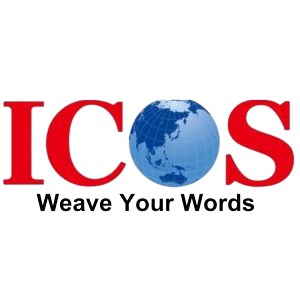From Tokyo to Bangalore: How Japanese investment in India is Evolving & the Role of Translation in Indo Japan Collabaration
If you talk to a man in a language he understands, that goes to his head. If you talk to him in his language, that goes to his heart.
John Doe

Hiroshi, a young and brilliant Japanese entrepreneur was fascinated by India’s rapid economic growth. He knew that there was something magnetic about the way India and Japan had been moving closer on the global stage.
From high-speed rail collaborations to sharing cutting-edge technology, these two nations had been seeing growth and prosperity, mutually.
His research told him that Japanese companies were pouring billions into Indian markets, particularly in tech hubs like Bangalore.
He wanted to know the reasons and at the same time wanted to explore his opportunities in this country.
So he decided to travel to India, on a leisure cum business trip, to gauge what India had to offer.
As he landed in Bangalore, he was excited to see what was awaiting.
Two days into the city of exploring and researching, he could sense and see opportunities everywhere. From bustling tech hubs to the vibrant streets of the commercial district, he knew he could make a fortune with his ideas.
But there was a major hiccup.
The language, the culture, the business etiquettes – all were different, and to be precise- they were challenging for a person like him, who was totally foreign to the language.
After going deeper into his research he found out- that nearly 80% of businesses like his struggled initially due to miscommunication.
He noticed that not all deals fell apart because of financials or strategy—sometimes, it was because of simple things like a misplaced word or a misunderstood email, that could unravel months of hard work.
He knew that to thrive in this booming landscape, he needed more than just business acumen; he needed a way to connect with the heart of the people of India.
This is exactly where translation comes in – the art of not just bridging languages, but also cultures, perspectives, and business philosophies.
There are over 1,400 Japanese companies already operating in India (with more Japanese companies expanding in India) and a significant percentage clustered in cities like Bangalore, Mumbai, Chennai, and Delhi, it’s clear that more of Japanese firms are all set to tap the Indian market.
And in a world where every word counts, translation services are the heroes that can turn potential pitfalls into powerful partnerships.
So, what makes Japan and India a perfect match for business, and how can translation services be your guiding angel, to giving you even greater success stories?
Let’s explore.
Table of Contents
Business Opportunity in Bangalore through Translation

The “Silicon Valley of India,” Bangalore, is a thriving center for entrepreneurship, innovation, and technology. It is home to thousands of tech startups and multinational corporations, making it an attractive destination for businesses worldwide, including Japanese companies.
For these companies, Bangalore is not just a market but a fertile ground for collaboration, innovation, and growth.
However, language can become a barrier. While English is the primary business language in Bangalore, many local businesses and stakeholders prefer their regional languages or even Japanese for more comfortable and effective communication.
This is where Japanese to English and English to Japanese translation services become crucial, ensuring that business communications are clear, culturally appropriate, and effectively resonate with local partners.
Some may still argue that English is widely spoken in Indian business circles, especially in cities like Bangalore. Why, then, would Japanese firms require translation services?
While English proficiency is common, assuming all business communication can effectively occur in English overlooks the deeper cultural nuances and specific business terminologies unique to each language.
Furthermore, this assumption underestimates the emotional and cultural connections that native language use can foster.
For instance, understanding nuances and professional etiquette, such as translating the Japanese phrase “ご苦労様です” (Gokurousama desu, used to acknowledge someone’s effort) into an English phrase that conveys the same level of respect and acknowledgment, can help build trust and establish a solid presence in Bangalore’s competitive market.
Let’s take an example:
Imagine a Japanese electronics company collaborating with a Bangalore-based software development company.
During a project meeting, the Japanese team mentioned their approach to “kaizen” (continuous improvement), a term that might not have a direct equivalent in English but holds significant importance in Japanese business culture.
The importance of the word can very conveniently go unnoticed by their Indian counterparts, losing their core USP to language barriers.
A translation service can not only convey the meaning but also explain the cultural context to the team, ensuring that the concept is fully understood and valued by the Indian team.
Role of Translation in Business Growth
Business growth is more than just expanding customer bases or increasing revenues—it’s about building strong, sustainable relationships.
Japanese companies in India have realized that growth is more achievable when they resonate with local markets.
Professional translation services are key to achieving this resonance, ensuring that their brand message is not just understood but felt by their Indian counterparts.
Translation mitigates the risks of miscommunication that can derail deals or create friction in negotiations.
For instance, accurately translating “根回し” (Nemawashi, a Japanese term for informal consensus-building) into a culturally relevant concept in English can help Indian partners understand the subtleties of Japanese business practices, fostering smoother negotiations and collaboration.
A counterargument might suggest that instead of investing in translation services, companies could rely on hiring bilingual staff or using automated translation tools.
While bilingual staff can bridge some gaps, they may lack the cultural expertise of professional translators.
On the other hand, automated tools may provide literal translations but often miss the context, leading to errors or cultural faux pas.
Thus, professional translation services are your resource.
They offer more than just language translation—they provide cultural insight essential for effective business communication.
Example:
Consider a scenario where a Japanese automotive company wants to introduce a new vehicle model in India.
The company’s marketing materials and product descriptions need to be localized accurately.
A professional translation service can adapt these materials to suit Indian cultural norms and consumer preferences, enhancing market acceptance and brand trust.
Cultural Exchange Enhancement via Translation Services:

Cultural exchange is a vital aspect of international business, involving not just products or services but understanding the cultural context in which they will be used.
Japanese firms entering the Indian market must recognize that culture heavily influences consumer behavior, business etiquette, and negotiation tactics.
Translation services help navigate these cultural nuances and avoid pitfalls.
For instance, understanding the importance of Diwali, a major Indian festival, could influence a Japanese company’s marketing calendar or product launches, ensuring that their efforts are culturally resonant and effective.
Some may argue that cultural exchange can naturally occur over time as businesses engage with local markets.
However, this organic process can be slow and fraught with risks. Missteps due to cultural misunderstandings can lead to lost opportunities or offended clients.
Professional translation services provide a proactive approach, saving time and resources while minimizing these risks.
Example :
Imagine a Japanese fashion brand entering the Indian market.
A professional translation service could help the brand adapt its messaging to respect local customs, such as choosing colors that are considered auspicious or avoiding those associated with mourning, thus enhancing the brand’s appeal.
Economic Growth Through Translation Expertise
For Japanese companies, the diverse Indian market offers numerous growth opportunities. However, effective communication across different regions and languages is key to tapping into this potential.
Translation services enable companies to localize their content, expanding their reach beyond metropolitan areas to second- and third-tier cities, where much of India’s population resides.
This is particularly important in India, where language and cultural diversity can significantly impact business success.
Some might argue that the initial cost of hiring professional translation services may outweigh the benefits, especially for smaller firms.
However, this view overlooks the long-term advantages of faster market penetration, reduced misunderstandings, and stronger local partnerships, which ultimately lead to cost savings and higher revenues.
Example:
Consider a Japanese electronics firm wanting to sell its products in smaller Indian cities.
By using translation services to localize its product manuals, advertisements, and customer support, the firm ensures that its messages are understood and appreciated, ultimately leading to wider market penetration.
Multinational Ventures Supported by Translation
Clear communication is crucial for multinational ventures.
Misinterpretations of legal terms, business contracts, or partnership agreements can lead to conflicts or litigation. Translation services ensure that all parties have a shared understanding, maintaining trust and clarity.
For Japanese firms entering joint ventures in India, translation services help in drafting precise agreements, clarifying legal obligations, and ensuring compliance with local regulations—critical in a country where regulations differ significantly from Japan.
Some might believe that in-house counsel familiar with both jurisdictions could handle these translations.
However, even legal experts may lack the linguistic skills to capture every nuance.
Translation services complement legal expertise by ensuring precision and cultural sensitivity, reducing the risk of costly misunderstandings.
Example:
A Japanese pharmaceutical company partnering with an Indian research firm might need to translate complex scientific documents and regulatory requirements accurately.
Professional translators ensure these documents are not only linguistically accurate but also aligned with local regulatory standards.
Effective Communication with Japanese Firms
Communication is key to any successful business connection, especially Indo-Japanese ones.
For Japanese firms engaging with Indian businesses, translation services play a pivotal role in ensuring that all parties clearly understand each other’s expectations, feedback, and strategies.
Japanese business culture places a high value on precision, formality, and indirect communication, often utilizing nuanced language and expressions that may not have direct English equivalents.
By investing in professional Japanese-to-English and English-to-Japanese translation services, Indian businesses can ensure that their communications are accurate and culturally appropriate.
This reduces the risk of misinterpretations that could lead to delays, misunderstandings, or strained relationships, enabling smoother negotiations, contract finalizations, and day-to-day operations.
To Know about Japanese Communication Style in Business Click Here
Some might argue that frequent meetings or feedback sessions could resolve communication issues without the need for translation services.
While such practices are helpful, they do not guarantee that all nuances and intentions are properly conveyed.
In critical negotiations or strategic discussions, even a minor misunderstanding can have significant consequences. Professional translation services ensure that communication is not only regular but also clear, accurate, and culturally sensitive.
Example:
Imagine an Indian company sending a proposal to a Japanese partner, detailing their expectations for a joint project.
A poorly translated document could lead to confusion or disagreement over project scope, timelines, or costs.
However, with precise translation services, both sides would be aligned, ensuring a productive collaboration from the outset.
Frequently Asked Questions
Japanese partnerships in India offer access to advanced technology and a vast consumer market. For example, Maruti Suzuki’s success in India showcases how such collaborations can drive growth and capture significant market share.
Translation services bridge the language gap, ensuring clear communication and reducing misunderstandings. They help align business operations and marketing efforts, leading to smoother interactions and increased market share.
Effective communication fosters a deeper understanding of each other’s cultural nuances, enhancing business relationships. For instance, appreciating Japan’s attention to detail and India’s dynamic market can lead to more innovative and respectful partnerships.
Translation services facilitate smooth operations by ensuring accurate communication of documents and agreements. They help navigate regulatory environments and enhance coordination in multinational ventures.
Effective cross-cultural strategies include investing in professional translation services and cross-cultural training. These approaches help Japanese firms understand local business practices and build stronger relationships in the Indian market.
Signing Off:
Our discussion on Japanese investment in India and the indispensable role of translation services reveals a deeper insight: in our interconnected world, the ability to communicate across cultures is more than a mere skill—it’s a gateway to limitless potential.
As businesses navigate the complex terrain of international expansion, the value of understanding and embracing cultural and linguistic differences becomes abundantly clear. Translation services do more than just translate words; they act as bridges that connect diverse worlds, creating pathways where there were once barriers.
They turn potential misunderstandings into moments of shared clarity, allowing businesses to not only survive but thrive in new markets.
In this light, investing in translation is an investment in growth, trust, and the future. It’s about forging relationships built on respect and understanding, and it’s about recognizing that every market, every culture, and every partnership holds a unique promise.
As we advance in a globalized economy, the true leaders will be those who see translation not as a cost, but as a strategic tool for innovation, inclusivity, and sustainable success.
Looking For Japanese Translation in Banglore?
Connect with us for the Best English to Japanese and Japanese-to-English translation services in Bangalore.
Talk To Our Experts
